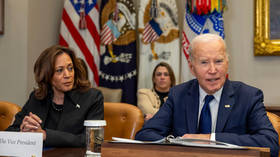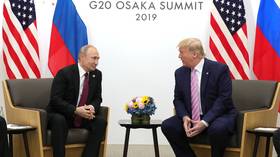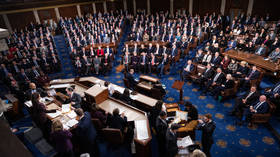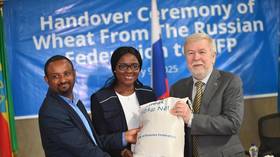‘Israel has no right to divide Palestinians’
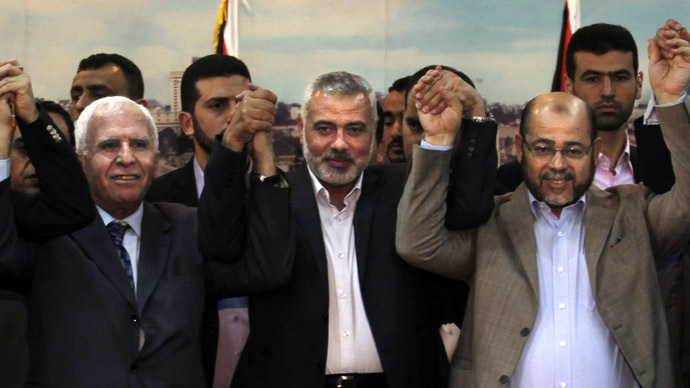
It’s not the Hamas-Fatah reconciliation that is derailing the peace process, but reluctance on the Israeli side to accept the Palestinian people, former Palestinian negotiator and Fatah party member, Nabil Shaath, said on RT’s show ‘In the now’.
RT:What do you make of Kerry's taking back his comments on the apartheid character of Israel and what does it say about the US commitment to the peace process and two-state solution?
Nabil Shaath: I think the US is committed to a two-state solution and it remains committed to some peace process, but they realize that it is very difficult to get anything done with the present Israeli government. The last 9 month were frustrating - the Israeli government today does not believe in any of the international commitments that it made before in the Oslo agreement, in the road map, in Napoli and many other places, starting in Madrid in 1991. Therefore it is very difficult really to reach the two-states solution when Israelis are eating up the occupied territory in the West Bank and they are really treating us [Palestinians] like the [black] South Africans were treated during the apartheid system. It is very difficult really to have a peace process.
RT:What about US diplomacy that can’t be honest with its partner in trying to find a solution?
NS: The US Secretary of State has his commitments and has his diplomatic language. Once in a while I think it becomes very frustrating, so he expresses the truth and then finds it very difficult to swallow. This is not the first time that it’s happened… if you recall in 1991 at the Madrid conference, President Bush, and Foreign Secretary James Baker took a harsh position against Mr. Shamir and in fact withdrew $10 billion of loan guarantees that the US committed to give to Israel in order to get Israel to move on the peace process and to go to the Madrid conference. I think it’s the responsibility of the US to do so… not only to put pressure on the Palestinians.
RT:A deal was struck recently among rival factions, Hamas and Fatah. Israel considers Hamas a terrorist group. How can the peace process go forward with Hamas unwilling to recognize Israel?
NS: It’s very ironic that Mr Netanyahu said this, while he has in his cabinet people like Naftali Bennett and others who totally negate the peace process, totally negate any commitment to the process and who very clearly declare their extreme positions on never accepting a Palestinian state. If you really look at the way the Israeli army has been dealing with our people and the settlers have been dealing with our people, during these negotiations 60 Palestinians were killed by the Israeli army or settlers. If Mr Netanyahu wants peace he has to accept the Palestinian people together, in one package, in one state. He has no the right to divide Palestinians.
RT:But if you struck a deal between Hamas and Fatah, then any sort of peace process will be delayed because of Israel’s reaction. Couldn’t those factions have postponed joining together?
NS: No, we have to unite our people because the Israelis have been telling us we cannot negotiate with you if you do not represent Gaza, if you represent only the West Bank we cannot have peace with all the Palestinians. And now they say the contrary: “If you have Gaza and the West Bank together, we don’t want peace with you.” The unity we are seeking with Hamas is a democratic unity that will be based on elections and the Palestinian people will decide, and there are commitments that we have made that we will keep and there is the constitution of the PNA [Palestinian National Authority] that has made peace with Israelis that will be kept. But it’s the Palestinian people who will decide that in the elections.
The statements, views and opinions expressed in this column are solely those of the author and do not necessarily represent those of RT.
The statements, views and opinions expressed in this column are solely those of the author and do not necessarily represent those of RT.


